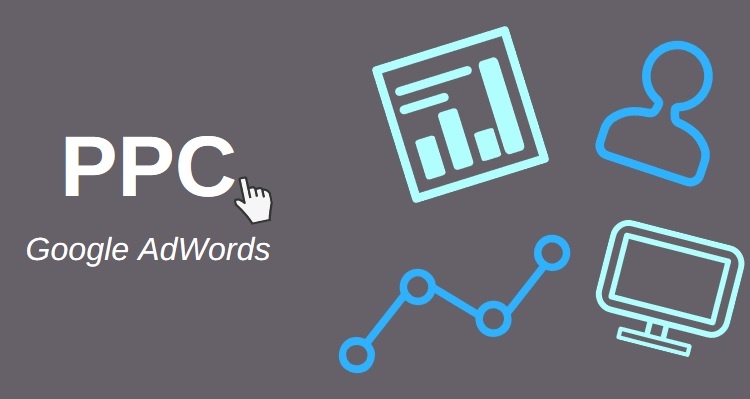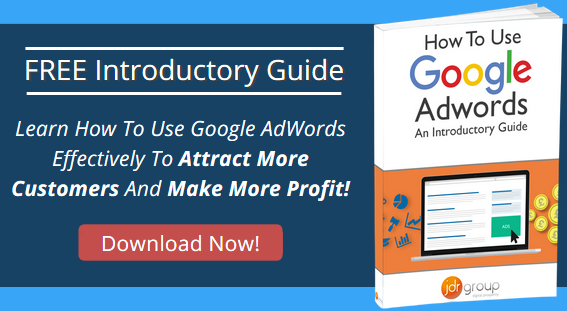How Much Does PPC Cost?

The question of how much Google pay per click (PPC) advertising costs is often asked with some trepidation, maybe with a slight wince while awaiting the answer. This is because the very idea of PPC is linked to two common – but ultimately unfounded – fears, namely:
1) That PPC will cost thousands of pounds and that the expenses will escalate beyond control with very few results and;
2) That competitors will ramp up their bill by clicking on their PPC links, simply to increase their campaign charges.
Leaving aside the question of whether your competitors actually would attempt to do such a thing (most wouldn’t), the key worry behind these fears is that of control. Fortunately, although the costs of PPC are variable, it is not like automated trading – in that you remain in control at all times.
Setting Budget Caps
With Google AdWords you have access to a very elaborate system of spend limits and restrictions that ensure you never spend more than you planned to. You can set an overall daily budget cap, which will disable your advert when reached, so you don’t keep accumulating clicks. Within this, you can set specific cost ceilings for any of the following factors:
- Individual keyword cost per click
- Ad Group
- Campaign
So part of the reason we have written this article is to set your mind at rest about the affordability of PPC. You can literally spend as much or as little as you wish on pay per click adverts. This being said, the results you see from PPC very much depend on how well your campaign is managed, which is where our team at JDR can help.
If you do it correctly, PPC won’t actually cost you anything, because in terms of ROI you will be gaining money for every pound you spend.
How Google AdWords Costs Are Calculated
Let’s go back to basics. The core proposition of PPC advertising is that you market your adverts only to people who are directly relevant to your service, based on their search criteria. And you only pay when a website visitor clicks your link to visit your landing page. So if you had no clicks you wouldn’t pay anything at all (although you wouldn’t gain anything either!).
Following from this, Google calculates your cost per click (CPC) based on how valuable your advert is perceived to be for you. This is a dynamic figure and can change over time, based on four factors that we will explain below. A good rule of thumb states that as the number of clicks on a keyword advert increases, the CPC will rise proportionately to reflect its market value.
This is based not only on your clicks, but on those of your competitors as well. Here is the reason your competitors are unlikely to play a game of click spam on your adverts, as their prank will hike up the CPC of their own adverts as well!
Factors Affecting CPC, And How To Keep Your PPC Campaigns Cost-Effective
There are four main variables that affect the amount you spend on PPC and the amount of revenue you get back. When they are actively managed, your advertising expenses can be kept to a minimum, while the value of each advert in terms of new sales can be kept consistently high.
1) Keyword Popularity
Google will charge you for every person who clicks on your link, so the more clicks you get the more your campaign will cost. This is great, because with every click comes the opportunity to convert a visitor into a lead. You can encourage people to click on your link by writing an engaging advert – which will be the text your visitors see when your advert appears in the search results. This should concisely spell out your value proposition in as few words as possible.
You can gauge how successful you’ve been at this by keeping an eye on your click through rate (CTR). CTR is calculated by comparing your number of clicks to the number of times your advert has been shown. A low CTR is an indication either that your adverts need changing, or you should review the keywords you are targeting. You can split test your ads to determine which keyword placements and descriptions get the best results. This is a great way of improving your CTR and lowering the cost of your campaign.
However, as important as clicks are, you don’t want people to click through and then leave your landing page disappointed, as you will have all of the costs with none of the results. Creating a compelling landing page is therefore an essential element of running a successful PPC campaign.
2) CPC Bidding Auction
The cost per click itself is a competitive business. When choosing a keyword, Google invites you to enter the maximum cost you are prepared to pay per click. It is effectively a real-time bidding auction with your competitors. Google compares all the bids and issues a cost per click based on market averages. The more businesses that bid on a keyword, the higher the cost will be. This is why popular keywords are always more expensive than obscure ones. The popularity of a keyword also increases the CPC, as we have explained.
You can use the Google Traffic Estimator Tool to calculate how much certain keywords are going to cost. Remember, you can always use your budget caps to keep full control of your PPC expenses. It isn’t always advisable to bid on popular keywords, both because of the stiff competition and because it can reduce your quality score (see below). When working with JDR, our team can suggest relevant, low competition long tail keywords that capture traffic while keeping your CPC as low as possible.
3) Quality Score (QS)
Google’s Quality Score is its way of regulating PPC adverts and ensuring that quality remains high. It also affects the cost of your adverts. The QS is given as a figure between zero and 10, with 10 being the highest. High Quality Scores have a lower cost per click, appear higher in the advert rankings, and appear more frequently than lower quality adverts. Working with our professional PPC team can help you maintain a consistently high QS, boosting your efficiency and lowering your costs. The following factors will affect your quality score:
- The CTR of all the keywords in your AdWords account.
- Placement of keywords and negative keywords in the advert.
- The relevance and quality of your landing page.
- Maximising keyword use within your advert without overusing it (often a delicate balance).
- A clear call to action.
- How well your URL and domain name are displayed, and how relevant these are to the advert.
The best way to maintain a high QS is to undertake regular marketing audits on your PPC landing pages and your overall web presence. This includes your main website and social media profiles. Our team at JDR include regular website critiques and SEO audits as part of our marketing service. Like other digital marketing techniques, PPC does not operate in a vacuum, but is best used in conjunction with other approaches.
4) Visitor Value & Conversion Rate
Your visitor value, or how much revenue you gain on average from each click, is an important metric to measure when assessing your PPC costs. You calculate visitor value by taking the total revenue from your AdWords campaign and dividing it by the total number of visitors. Your goal should be to keep this value as high as possible, as this will increase your ROI and reduce the cost of your campaign. The best way to increase visitor value is by concentrating on the most valuable visitors! These visitors are those who are most likely to convert into a sale. You attract these visitors by keeping your content relevant and personalised to your target market. A good conversion rate follows naturally from this.
Google AdWords allows you to analyse your conversion rate by split testing your adverts based on interests, location, market sector and scheduling time. You can then concentrate on the best performing metrics to boost conversion rate and increase your visitor value. This is probably the easiest and quickest way to increase your ROI from PPC, but it does require careful management and analysis. Building up your average visitor value is one of our core strategies when managing your PPC campaigns.
How To Use Google AdWords
Make sense of the complex and wonderful world of pay per click marketing with our free eBook: How To Use Google AdWords: An Introductory Guide. This valuable resource helps you attract more customers and sales by explaining how to use keywords, ad groups and landing pages to get the best results from your PPC campaigns. To start saving money and gaining more leads, claim your copy today by clicking here.


